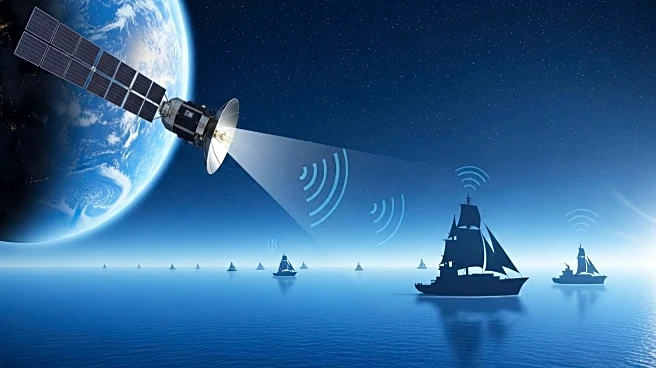What's Happening?
Pulsar International and Inmarsat Maritime have announced a major expansion of their NexusWave connectivity service, committing to roll out the technology across more than 300 vessels over the next year. NexusWave, a bonded multi-network service, combines GEO Ka-band, LEO, LTE, and L-band to provide reliable and secure internet connectivity at sea. This initiative aims to support shipping companies in accelerating digitalization, enhancing crew welfare, and implementing decarbonization strategies. Pulsar plans to expand its global reach and local sales teams to ensure seamless installation and support for its customers.
Why It's Important?
The rollout of NexusWave connectivity is significant for the maritime industry, as it addresses the growing demand for high-speed, reliable internet at sea. Enhanced connectivity supports operational efficiency, crew welfare, and environmental sustainability by enabling digital solutions and reducing carbon footprints. This development reflects the industry's shift towards digitalization and the need for secure communication networks to support modern shipping operations.
What's Next?
With installations beginning in October 2025, the program is expected to play a crucial role in transforming maritime operations. As more vessels adopt NexusWave, shipping companies may explore additional digital solutions to further enhance efficiency and sustainability. The success of this rollout could lead to increased collaboration between technology providers and maritime operators, driving innovation in the industry.
Beyond the Headlines
The expansion of maritime connectivity raises questions about cybersecurity and data privacy at sea. As vessels become more connected, ensuring the security of communication networks and protecting sensitive data will be critical. This development may prompt regulatory bodies to establish guidelines for maritime cybersecurity, influencing industry standards and practices.










